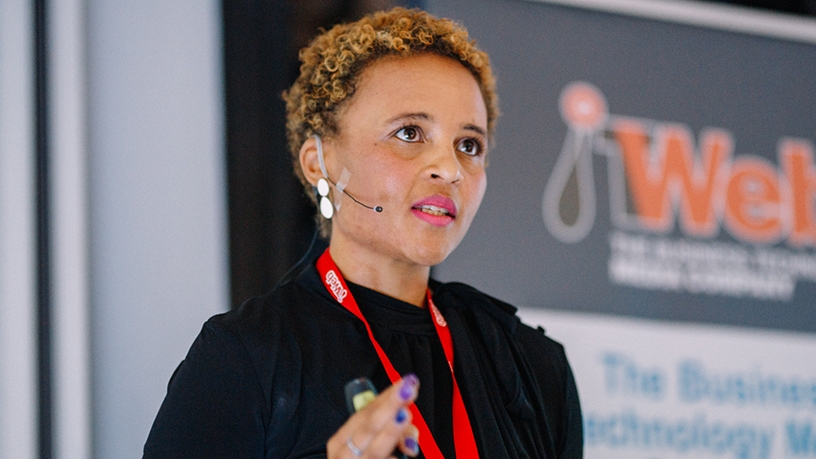
Busisiwe Mathe, chairperson of PricewaterhouseCoopers SA's governing board.
These are: commoditisation of human experience through data collection, worker displacement and transitions, and fostering inclusion in the workplace.
This is according to Busisiwe Mathe, chairperson of PricewaterhouseCoopers (PwC) SA's governing board and member of the PwC Africa governance board, giving a keynote presentation at ITWeb Governance, Risk and Compliance 2019, in Johannesburg today.
Discussing ethical leadership and corporate governance in the digital age, Mathe noted that legislation and compliance policies should catch up quickly with the rapidly evolving technologies to help business leaders push the boundaries in preparing local organisations for the fourth industrial revolution.
"Digital transformation brings with it a whole new set of opportunities and risks. How do business leaders and GRC practitioners navigate their way, while ensuring they are being ethical?"
The impact of digitalisation has led to commoditisation of human experience through collection of data, as organisations increasingly extract, store and use data to give customers the right experience, she said.
"As business leaders, we need to think about how we use this data in an ethical manner. To achieve this, organisations can build consumer and employee trust around data by developing data governance programmes and risk management initiatives aimed at protecting and managing the data lifecycle."
In the face of the fourth industrial revolution, GRC practitioners should ensure transparency in how technology is adopted and how it will affect employees, business partners and customers.
"Automation-based decisions in the workplace should be explained to build trust, and business leaders should get involved early and consider incremental adoption of the tech in a more responsible and ethical manner."
She referenced a PwC CEO survey, which found respondents were divided about whether Industry 4.0 will displace more jobs than it creates.
According to the report, the automation process can be characterised as involving three overlapping waves: algorithm, augmentation and autonomy.
"The first wave of automation, which is already well under way, is primarily an automation of simple computational tasks and analysis of structured data," explained Mathe.
"The second wave of automation is expected to involve a more dynamic change to how many job tasks are conducted, in particular those that are routine and repeatable.
"The third wave of automation is one of autonomous artificial intelligence (AI) and robotics that will automate tasks that involve physical labour or manual dexterity. Studies suggest that by 2030, only 30% of jobs will be affected by automation."
In the digital age, organisations should create digital systems that are deliberately inclusive and not biased towards a certain group of people, she asserted.
She referenced a 2018 incident where Amazon scrapped its AI-based recruiting tool that showed bias against women.
"Business leaders should ensure ethical leadership by looking at the organisation's value system and make decisions that have a long-term positive impact on businesses, employees and consumers," she concluded.

